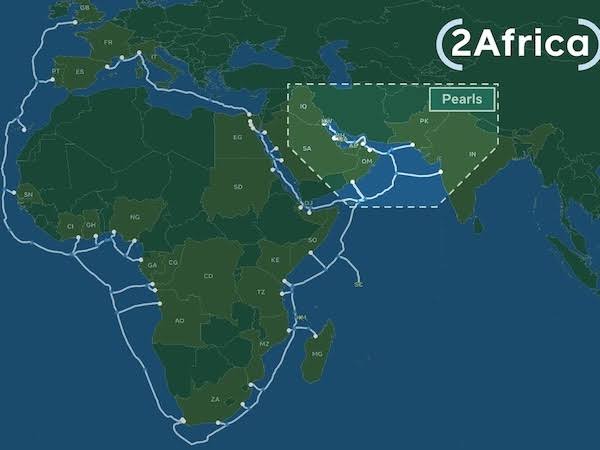2Africa, the world’s largest submarine cable system, landed its cable in Nacala-Porto, Mozambique.
Master Power Technologies, the project partner, inaugurated a unique data centre. The first underwater cable landing in northern Mozambique promises Vodacom customers faster internet speeds and capacity. Mozambique’s digital economy benefits greatly from this.
The authorized cable landing partner, Vodacom, will provide quicker and more reliable internet services via a direct international gateway. The 2Africa consortium includes China Mobile International, Meta, Bayobab (previously MTN GlobalConnect), Orange, Center3, Telecom Egypt, Vodafone Group (parent of Vodacom), and WIOCC. They built the 45,000-kilometer 2Africa cable system under this umbrella.
Read also: The Equiano Undersea Cable from Google Arrives in South Africa
When it started up in May 2020, this cable system would link 19 African states and 33 countries to improve internet connections between Africa and the rest of the world. Vodacom uses the ports of Maputo and Nacala to set up lines. This project shows how committed Vodacom is to improving digital access and the quality of internet service in Mozambique and Africa.
José Mendes, Managing Executive Vodacom Business, Mozambique, says, “The landing of the 2Africa submarine cable reaffirms Vodacom’s commitment to boost digital inclusion in Mozambique and the African continent by increasing access to quality internet services and investing in network infrastructure.” This is a huge challenge we cannot handle Other industry and government players must work together to connect more residents across the continent.”
Benefits of 2Africa’s Undersea Cable for Mozambique
The 2Africa project makes sure that all internet service companies have equal access and helps build a strong ecosystem for internet services. Through this project, foreign connections can be made directly between data centres, companies, and wholesale clients. So, companies and consumers can expect online activities like telecommuting, HD video streaming, and cutting-edge multimedia apps to have better quality, reliability, and latency.
The landing of this fiber optic line could help the local and national economies by creating jobs in data centres, call centres, and software development, all of which depend on global connectivity. The 2Africa project supports 4G, 5G, and fixed broadband coverage in underserved and rural areas, as well as network resilience across the country, by keeping an eye on the direction of technology.
Africa Data Centre constructs largest Data facility in West Africa
Alcatel Submarine Networks, which is making and building the 2Africa cable system and will be done by 2024, is a key part of the prosperity story. The line will go through Europe, the Middle East (via Saudi Arabia), and Africa. It will be 45,000 kilometers long and be able to handle 180 Terabits per second.
This massive infrastructure expands communities’ access to internet resources for education, health care, jobs, and banking, as well as the immense economic and social benefits of constant connectivity. Projections suggest it might have a major economic impact. It might generate $26.2–36.9 billion, 0.42–0.58% of Africa’s GDP, in its first few years.




